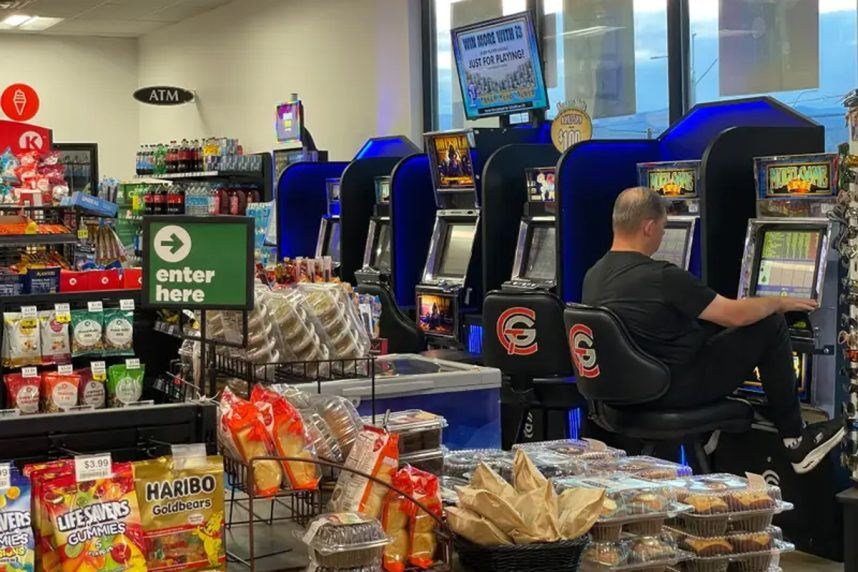The Rising Tide of Gambling: A Looming Public Health Crisis
Posted on: October 26, 2024, 02:13h.
Last updated on: October 25, 2024, 05:15h.
The world is witnessing an unprecedented surge in gambling activities, with various regions adopting more lenient regulations and offering greater access to games of chance. A deeply concerning study by an international commission highlights the potential public health crisis resulting from this expansion. With millions around the globe engaging in gambling like never before, the need for immediate governmental action has never been more pressing.

The Commission’s Findings
An assembly of experts, the Lancet Public Health Commission on Gambling, composed of 22 medical doctors and PhD researchers, has thoroughly examined the worldwide implications of the gambling industry’s expansion. Their report, titled “Time for a Public Health Response to Gambling,” outlines clear and alarming conclusions: gambling possesses multifaceted risks that extend beyond individual consumption, affecting communal well-being, personal finances, and interpersonal relationships.
The commission’s report emphasizes that newer markets and jurisdictions embracing casino gambling, together with the migration to online platforms, increase the risk of addiction and related harms. This has resulted in a call to action for governments and policymakers to reassess their stance on gambling.
Nature of the Problem
Historically, governments have often ignored the societal ramifications of gambling, mainly due to the economic benefits derived from tax revenues. The commission’s report illuminates how this oversight has led to an environment where personal responsibility is prioritized over public health, creating a long-term pathway to addiction for many individuals.
“Inaction”, the commission argues, “is no less harmful when the impacts of gambling are ignored or minimized.” With global gaming revenue projected to approach $700 billion by 2028, and gambling being legal in approximately 80% of countries, the potential for public health repercussions escalates significantly.
The Public Health Crisis
In light of these findings, the commission asserts that gambling should be treated similarly to other public health issues driven by addiction, such as alcohol and tobacco. Their insights highlight a crucial need for comprehensive regulation aimed at reducing gambling exposure—specifically through curtailing advertising and bolstering support and treatment programs.
One of the main criticisms is directed at existing responsible gaming programs, which tend to focus on individual accountability rather than the systemic influences and operations of the gambling industry. The report argues that relying solely on individuals to seek help is a flawed approach, suggesting that the nature of gambling itself must be scrutinized and reformed.
The Urgent Need for Action
The report identifies online gambling as a primary concern, especially given the rapid evolution of technology that permits round-the-clock access to gambling products. The boundaries between casual gaming and gambling are increasingly ambiguous, posing unique challenges to participants who may not recognize the addictive nature of these activities.
Heather Wardle, Commission Co-Chair and a leading gambling researcher, notes that modern mobile technologies amplify these risks: “Anyone with a mobile phone now has access to what is essentially a casino in their pocket, 24 hours a day.” The implications of this constant availability are staggering and necessitate a reevaluation of public policies surrounding gambling.
Responding to Industry Concerns
Despite these alarming findings, the gambling industry often defends its practices by emphasizing the broad enjoyment their products bring to a significant number of consumers. However, the commission dismisses these assertions as misleading. They assert that the pressure to protect profit margins often overshadows necessary regulatory changes.
As pressures mount for governments to take action, the discourse surrounding gambling regulations will continue to evolve. The American Gaming Association, for instance, asserts their commitment to responsible gaming and consumer protection, emphasizing investments aimed at promoting safer gambling practices.
Conclusion
The message from the Lancet Public Health Commission is unequivocal: without proactive engagement from governments, the proliferation of gambling could spiral into a public health crisis with devastating consequences. By treating gambling with the seriousness it warrants—acknowledging the addictive nature of these activities—governments have a duty to protect their citizens.
As gambling becomes more integrated into society, the need for structured regulations, comprehensive support, and a shift in public perception cannot be overstated. Engaging with this issue now is crucial to safeguard public health, ensuring that future generations are not unduly burdened by the consequences of unchecked expansion within the gambling industry.













